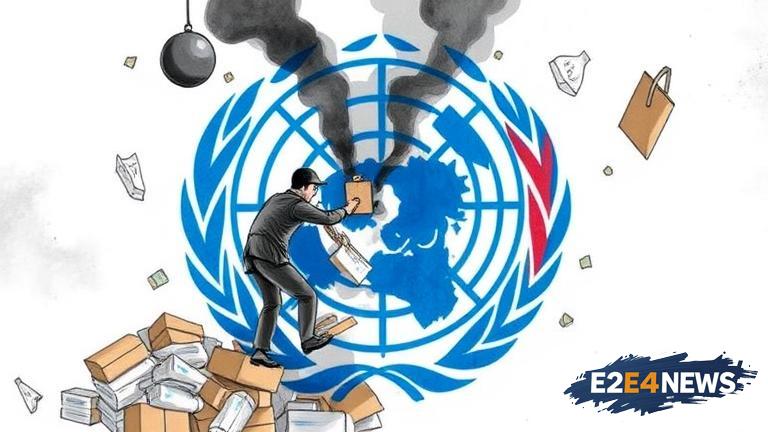A recent investigation has revealed that Israel lacks concrete evidence to substantiate claims that Hamas has been looting United Nations aid in Gaza. This discovery has sparked intense debate and controversy, with many questioning the validity of Israel’s assertions. The reports, which have been made public, suggest that there is no credible proof to support the allegations of looting. This has led to a re-evaluation of the situation in Gaza, with many calling for a more nuanced understanding of the complex issues at play. The lack of evidence has also raised concerns about the potential for misinformation and the impact it can have on the perception of the conflict. Furthermore, the reports have highlighted the need for greater transparency and accountability in the distribution of aid in Gaza. The United Nations has been working tirelessly to provide assistance to those in need, but the allegations of looting have created a sense of uncertainty and mistrust. The investigation has also shed light on the challenges faced by aid workers in Gaza, who often operate in difficult and dangerous conditions. Despite these challenges, the UN remains committed to providing aid to those who need it most. The reports have also sparked a wider debate about the role of international organizations in conflict zones and the need for greater cooperation and coordination. The situation in Gaza remains complex and multifaceted, with many different factors at play. The lack of evidence to support the allegations of looting has added a new layer of complexity to the situation, and it remains to be seen how this will impact the ongoing conflict. The international community has a critical role to play in resolving the conflict and addressing the humanitarian needs of those affected. The reports have also highlighted the importance of independent investigation and verification in ensuring that allegations are substantiated by credible evidence. In the absence of evidence, it is essential to approach claims with a critical and nuanced perspective, recognizing the potential for misinformation and the need for verifiable proof. The situation in Gaza is a stark reminder of the need for ongoing diplomacy and dialogue, as well as a commitment to transparency and accountability. The UN and other international organizations must continue to work together to address the humanitarian needs of those affected by the conflict. The reports have also underscored the importance of protecting civilians and ensuring that aid reaches those who need it most. The investigation has provided a valuable insight into the complexities of the conflict and the need for a more informed and nuanced understanding of the issues at play. The lack of evidence to support the allegations of looting has significant implications for the international community and the ongoing efforts to resolve the conflict. As the situation continues to evolve, it is essential to remain vigilant and committed to the principles of transparency, accountability, and verifiable evidence. The reports have also sparked a wider debate about the role of media and the potential for misinformation, highlighting the need for critical thinking and media literacy. The investigation has provided a timely reminder of the importance of independent journalism and the need for credible sources of information. The situation in Gaza remains a pressing concern for the international community, and it is essential that we approach the issue with a critical and nuanced perspective, recognizing the complexities and challenges at play.
